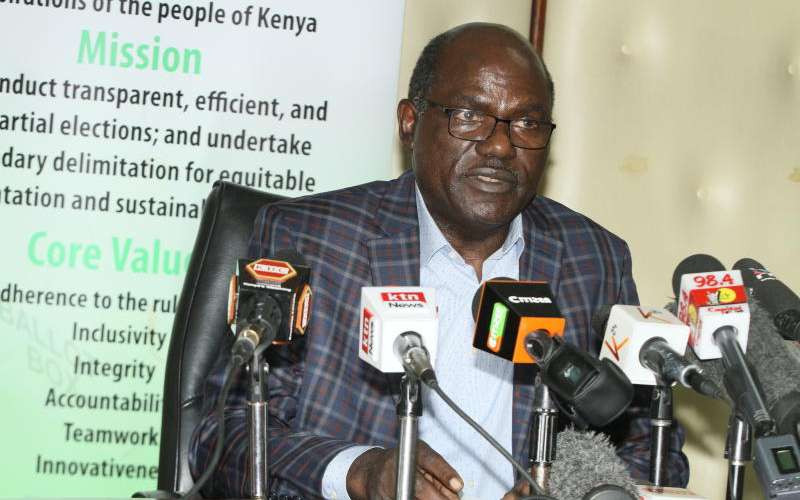
He has been at the helm of the electoral commission for the last three general elections with several highs and lows. And after completing his six-year term, Independent Electoral and Boundaries Commission (IEBC) Chairman Wafula Chebukati will exit the Anniversary Tower corner office in January next year.
The IEBC Act stipulates that the process of replacing a chairperson or an IEBC member commences at least six months before the lapse of their terms or within 14 days of the declaration of the vacancies, with the appointment of a selection panel by the President.